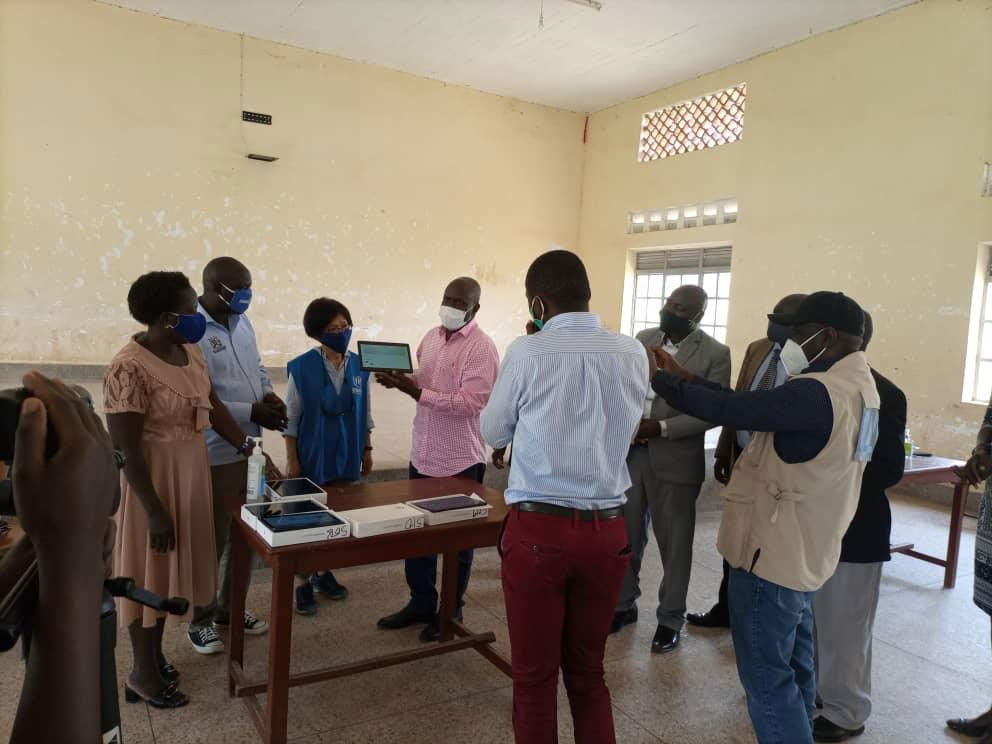26-year-old Ugandan Micah Egessa was among the teachers who learned how to use a tablet-based learning platform and help students continue their education from home during the COVID-19 pandemic in Uganda.
“I was excited to work with refugees,” says the young Ugandan teacher of Mathematics and Physics at the Nakivale Secondary School.
“Teaching children how to count is easy, but teaching them what counts in their life is a huge responsibility.”
In March 2020, Uganda instituted a lockdown to reduce the spread of COVID-19 in country.
All education institutions were closed and 15 million learners were sent back home, including 600,000 refugee children.
The Ministry of Education and Sports (MoES) in cooperation with UNHCR, the UN Refugee Agency, UNICEF and other partners developed a national COVID-19 Response Plan for Education to ensure continuity of learning during the pandemic.
To support the implementation of this plan, UNHCR with contributions from Education Cannot Wait (ECW) took an “Ed Tech”’ approach and invested in tablet devices to enable secondary school children to continue their learning during the COVID-19 restrictions.
A total of 2,115 tablets were procured for 35 secondary schools and loaded with learning content, as approved by the Ugandan National Curriculum Development Centre.
With most homes and schools lacking access to electricity, UNHCR also purchased 2,115 power banks to ensure fast charging for the tablets.

“As a teacher, my role is to make things easier for my pupils,” says Micah, who has taught a class of 350 students until COVID-19 hit Uganda.
In a training for teachers, organized by UNHCR in collaboration with Learning Equality, Micah learned about Kolibri, a free and easy to use digital learning platform as well as applications to monitor and assess pupils’ performance.
“The tablets will help teachers quickly plan assignments whilst also helping students focus on their homework,” says Micah adding that “these devices will help improve the computer skills of refugee children and boost their creativity.”
Uganda hosts more than 1.46 million refugees and asylum-seekers, mostly from South Sudan, the Democratic Republic of Congo (DRC) and Burundi.
Fifty-seven per cent (835,685) of these are children. Since October 2020, the Government of Uganda has begun reopening schools for selected classes, in a phased manner.
With the kick-off of the vaccination campaign in March 2021, the Ministry of Health aims at immunizing 49 per cent of the population above 18 years of age, including refugees.
Teachers are part of the priority group to be vaccinated against COVID-19, along with health workers.
Story Written by James Kiwalabye Male in Kampala, Uganda
















